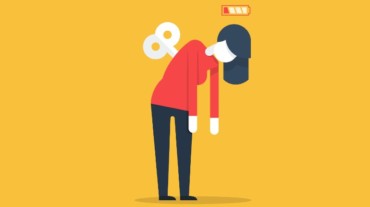
When it comes to mental health, there are a lot of ifs and buts. It could be blamed on the lack of awareness, because that’s why we often confuse things with one another. The most common misconception is around sadness and depression!
People who’re dealing with depression tend to think they are sad, while those who are sad and worried think they’re depressed. It’s also because we associate depression with symptoms of general sadness. Many of us find it difficult to distinguish between the two most common mental states.
Unfortunately, this confusion can cause us to ignore serious illnesses that need treatment i.e depression. We could also overreact about normative emotional states i.e sadness, on the other end of the spectrum. This is why the distinction is so important. If we or a loved one feels depressed, it can have a huge impact on their mental and physical health, as well as longevity.
That’s why we need to make a clear distinction between the two.
Depression is a disease, a persistent medical condition, which is the result of distorted thinking that is unrealistic. Often, it involves thinking about certain events (such as unemployment, illness, or death).
It is very important to know that depression is caused by sadness. It is also essential to understand that depression is not a normal human emotion. Depression has no timetable, it is an ongoing mental health condition that must be dealt with patience.

“Depression is a long-term mental illness. It impairs social, occupational and other important areas of functioning. If left untreated, symptoms of depression can persist for a long time,” says psychologist Komal Mishra from Kaleidoscope, a unit of Dr Bakshi’s Healthcare.
Causes of depression:
1. Physical abuse
2. Certain medications
3. Conflict
4. Death or a loss
5. Genetic
6. Personal problems
7. Serious illnesses
8. Substance abuse
Signs and symptoms of depression:
Select Topics of your interest and let us customize your feed.
PERSONALISE NOW1. Low energy
2. Feelings of worthlessness
3. Tired and sluggishness
4. Inability to make decisions
5. Loss of interest in normal activities
6. Change in appetite
7. Demotivation in life
8. Sadness
9. Weight gain or weight loss
10, Excessive sleep or insomnia
11. Difficulty in concentrating
12. Restlessness
13. Aggression and frustration
Depression is a long-term clinical disorder. The treatment for the same is dependent on the severity of the problem. It can be cured through medicines, therapy and various other measures.
Here are some tips that you can follow if you are feeling depressed:
1. Get enough sleep, as your mind also needs to unwind itself.
2. Do some exercises daily, to keep your body as well as mind in a healthy state.
3. Take out some time for meditation, and get in touch with yourself.
4. Practice gratitude as there are a lot of things to be grateful about.
5. Build a new hobby, as it helps you look forward to something new each day.
6. Reach out to friends and express your feelings to them.
7. Spend some time with nature, as it is a beautiful way to feel relaxed after a tiring day.
8. Create a new routine to strengthen yourself both mentally and physically.
9. Do something you enjoy like listening to music, dancing, singing, painting, etc.
10. Journal your thoughts and gain a new perspective about your thoughts and feelings.

“Sadness is what a mentally healthy person should feel. For example, when parents fight, exam results are bad, or when there are financial shortcomings or relationship issues. Sadness is short-term. You can recover in a short period of time by turning your mind to another place like listening to your favourite songs or having conversations with your loved ones. In this way, sadness is different from depression,” says Ms Komal.
Signs and symptoms of sadness:
1. Loss of interest in daily activities
2. Inability to sleep at night
3. Loss of weight and appetite
4. Feeling guilty
5. Difficulty in concentrating
6. Restlessness
7. Demotivation
8. Anxiousness
9. Feeling of worthlessness
10. Constantly dreading death
11. Loss of interest and enthusiasm
12. Fatigue

Some important tips to follow:
1. Identify the trigger that is affecting you, as it will help you take the requisite steps.
2. Take a moment to reflect on your thoughts, as they will assist you in getting in touch with yourself.
3. Ask for help, either from a friend or family member, because sometimes by sharing your thoughts, you feel lighter and gain a newer perspective.
4. Do something that interests you, as it will help you divert your mind to new and interesting activities.
5. Get enough sleep, as it is important to relax and unwind yourself.
6. Have a balanced diet, as your gut and mental health are related to each other.
7. Maintain your journal of thoughts, to keep track of your thoughts and feelings.
8. Make a point to share your feelings, as venting helps you feel much better.
9. Practice meditation daily, as it is a good way of introspection.
10. Exercise daily to take good care of your mind and body.
Now you know why it is important for us to have appropriate knowledge about sadness and clinical depression. It not only helps us in taking the right course of action but also empowers us to help others.